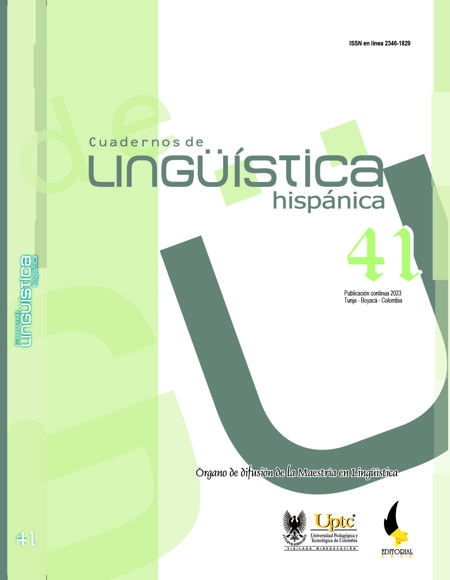English Language Learners Making Sense of Social Issues through A Critical Literacy Cycle

Abstract
This article explores how students engage with social problems in their local community through critical literacy in an English as a foreign language class. Using an interpretive, descriptive qualitative action research approach, the researchers examined the social issues in the students’ environment through observation sheets, questionnaires, and interviews. The results showed that critical literacy enhances students’ reading skills by enabling them to actively connect different texts and determine whether the messages promote or discourage the marginalization of minority groups. The study showed that raising students’ awareness of social issues empowered them to identify opportunities for change in their local communities. By overcoming personal and collective barriers and speaking out, students were inspired to seek transformative solutions.
Keywords
critical literacy, foreign language, local context, social problems, positioning
Author Biography
Yeison Dubán Gómez Castillo
Yeison Duban Gomez Castillo is a full-time English teacher who has taught in both private and public schools. He works at SENA Valle del Cauca, teaching English for specific purposes. He holds an M.A. in didactics of English from Universidad Surcolombiana. He is currently enrolled in a Ph.D. program in education at Universidad Pedagógica Experimental Libertador.
Jairo Enrique Castañeda-Trujillo
Jairo Enrique Castañeda-Trujillo holds a B.A. degree in Spanish and English from Universidad Pedagógica Nacional and an M.Ed. with Emphasis in English Language Didactics from Universidad Externado de Colombia. At present, he is studying in the Interinstitutional Ph.D. in Education Program at Universidad Distrital Francisco José de Caldas in the ELT Education emphasis. He is a member of the research group Aprendizaje y Sociedad de la Información and Estudios Criticos de Politicas Educativas Colombianas. He works as an Assistant teacher and researcher at Universidad Surcolombiana (USCO).
References
- Arifi, Q. (2017). Humanistic Approach in Teaching Foreign Language (from the Teacher Perspective). European Scientific Journal, ESJ, 13(35), 194. https://doi.org/10.19044/esj.2017.v13n35p194
- Díez-Gutiérrez, E.J. (2020). Otra investigación educativa posible: investigación-acción participativa dialógica e inclusiva. Márgenes: Revista de Educación de la Universidad de Málaga, 1(1), 115-128. https://doi.org/10.24310/mgnmar.v1i1.7154
- Facione, P. (2015). Critical Thinking: What It Is and Why It Counts. California Academic Press. https://courseware.e-education.psu.edu/downloads/geog882/Critical%20Thinking%20What%20it%20is%20and%20why%20it%20counts.pdf
- Freire, P. (2000). Pedagogy of the Oppressed. Continuum.
- Harré, R. (2015). Positioning Theory. In J. Martín, J. Sugarman, & K. Slaney (Eds.), The Wiley Handbook of Theoretical and Philosophical Psychology: Methods, Approaches, and New Directions for Social Sciences, 1.st ed., (pp. 263-276). Wiley-Blackwell.
- Landkammer, N. (2018). Reengaging Freire: Decoding and Re-coding Freire’s “Generative Images” and Critical Arts Education. Intertwining Hi/stories. Another Roadmap School.
- Mayo, P. (1995). Critical Literacy and Emancipatory Politics: The Work of Paulo Freire. International Journal of Educational Development, 15(4), 363-379. https://doi.org/10.1016/0738-0593(95)00021-T
- Ministerio de Educación Nacional, MEN (2006). Estándares básicos de competencias en Lenguas Extranjeras: Inglés. Formar en lenguas extranjeras: ¡el reto! Lo que necesitamos saber y hacer. Revolución Educativa. Colombia Aprende.
- McLaren, P. (1999). Paulo Freire’s Pedagogy of Possibility. In S. Steiner et al. (Eds.), Freireian Pedagogy, Praxis, and Possibilities: Projects for the New Millennium (pp. 1–22). Falmer Press.
- Morgan, W. (1997). Critical Literacy in the Classroom: The Art of the Possible. Routledge.
- Piaget, J. (1981). La teoría de Piaget. Infancia y aprendizaje. Journal for the Study of Education and Development, 4(2), 13-54. https://doi.org/10.1080/02103702.1981.10821902
- Pineda-Báez, C. (2004). Critical Thinking in the EFL Classroom: The Search for a Pedagogical Alternative to Improve English Learning. Íkala, Revista de Lenguaje y Cultura, 9(1), 45-80. https://doi.org/10.17533/udea.ikala.3142
- Sasson, I., Yehuda, I., & Malkinson, N. (2018). Fostering the Skills of Critical Thinking and Question-Posing in a Project-based Learning Environment. Thinking Skills and Creativity, 29, 203-212. https://doi.org/10.1016/j.tsc.2018.08.001
- SENA. (2020). Gestión de formación profesional integral, procedimiento desarrollo. curricular guía de aprendizaje. Servicio Nacional de Aprendizaje.
- Vásquez, V. (2017). Critical Literacy. Oxford Research Encyclopedia of Education. https://doi.org/10.1093/acrefore/9780190264093.013.20
